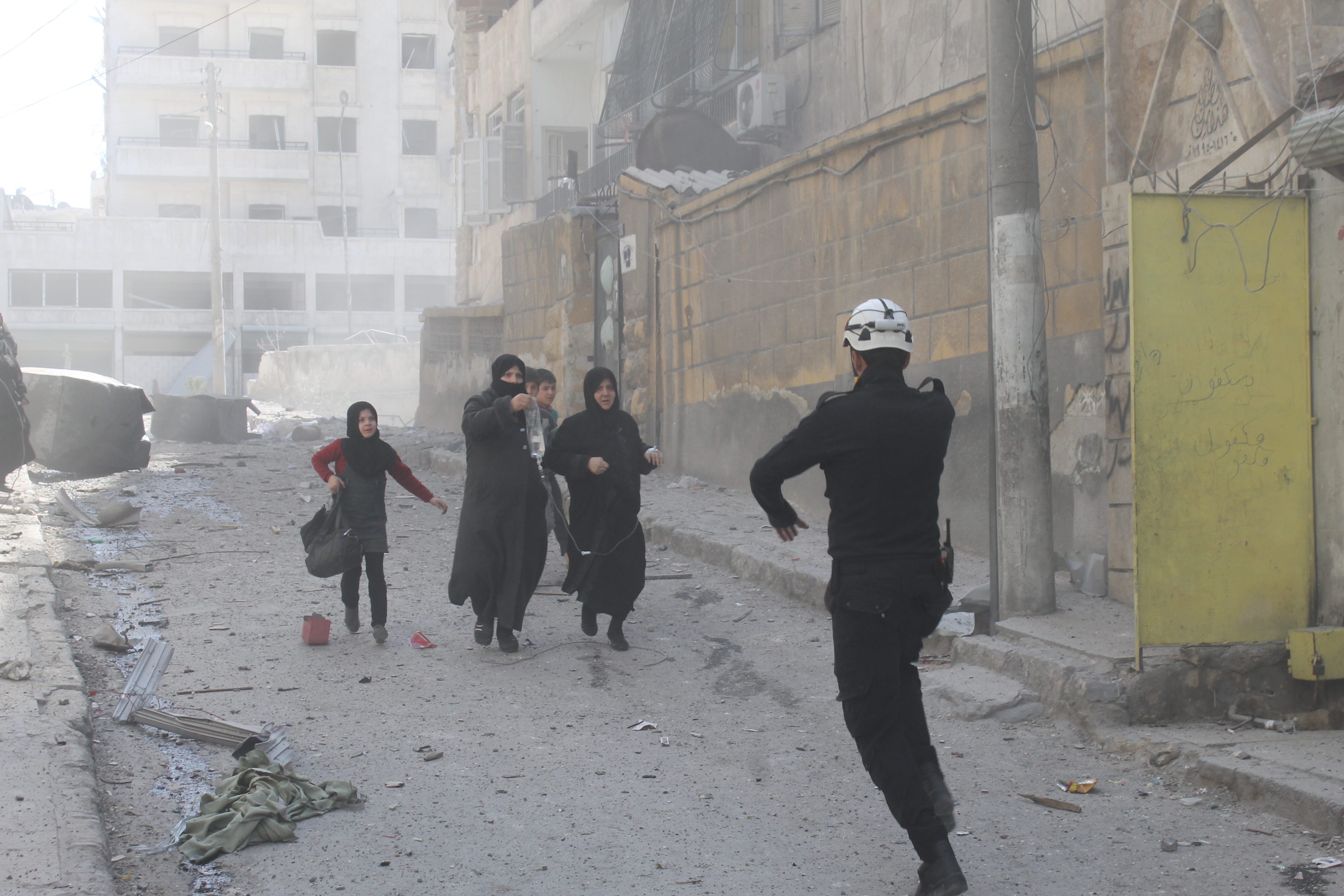Bitter Birthday Memories

July 15 is my birthday, so the first thing I did when I woke up that day in 2012 was log on to my Facebook account. My timeline was full of birthday wishes from friends and family, as well as news updates on the Syrian revolution.
While I was browsing through these posts, I received a direct message from a friend, but it wasn’t a birthday greeting. He told me a battalion of government troops was heading towards my city, Idlib and was now only five kilometres away.
I rushed to my parents and told them the news. Our house was in the city outskirts, so we began packing immediately. We knew that the battle would start in a few hours and that we needed to leave as quickly as possible, so we only took some essential belongings.
We squeezed into our small car – all eight of us – and for a few moments we just sat there wondering where we should go. The only place we could think of was my sister’s house in the city centre.

Throughout our journey, we saw soldiers of the Free Syrian Army (FSA) burning tyres to fill the skies with smoke in an attempt to shield the city from the looming airstrikes.
We had no idea whether the government would take the city or whether the FSA would be able to hold it, but we were still optimistic that things would calm down in a matter of days, allowing us to return to our home.
Two hours after we reached our destination, the army was at the city gates. The battle for Idlib had started.
Once we were settled, I began to check my smartphone for news updates. Every now and again, when I went out onto the balcony to get a good connection, I could hear bullets flying around and tanks bombarding the city.
On that first day, government forces took control of the neighbourhood which we had fled. By nightfall, the fighting had died down and search-and-arrest raids had started. Our neighbour called us and said our house had been stormed and searched by a group of soldiers who left nothing untouched.
The first thought that came to my mind was the Syrian revolutionary flag that my mother had sewn for me. I used to carry it during the Friday demonstrations, and I had left if hanging on my bedroom wall. I had also forgotten to take the money I had saved, hidden among my books.
Three days later, the FSA withdrew from the city. It had run out of ammunition and suffered losses. It vowed to rearm and return within a few days.
My mother and I decided to go and check on our home and bring back some important items that we needed. We decided to walk there, and on our way, we passed groups of government soldiers and tanks, which had now spread out across the city.
At one point, a soldier stopped us to ask where we were going. We said we were out to buy medicine for our sick father.
“Hurry up, then,” he said, “And be careful, there are terrorists out there killing civilians”.
We hurried along in fear of the snipers who were busy at work, the smell of death surrounding us. When we reached our neighbourhood, we found the minaret of our local mosque in ruins. I felt such grief when I saw this. We used to gather at this mosque every Friday for our demonstrations.
As we walked on, I felt more and more like a stranger in my own city, and with every step, the rage in my heart increased.
When we reached our house, it was in a state of chaos. The soldiers hadn’t spared a single item. Even the TV and computer screens had been shattered.
I found the remains of my flag in the kitchen. It had been burned along with some of my clothes.
Of all the rooms in our house, mine had suffered the most damage. All my belongings had been scattered on the floor, and I knew this was because they had found my flag there, along with the revolutionary banners I had hidden in my wardrobe.
My mother and I collected the items we had come for, and left.
For days, we waited for the return of the FSA, but those days turned into months, and eventually we grew bored of waiting, and bored of being displaced.
Narmin Abdulhamid is the pseudonym of a Damascus Bureau contributor now living in Silqin in northwest Syria.
